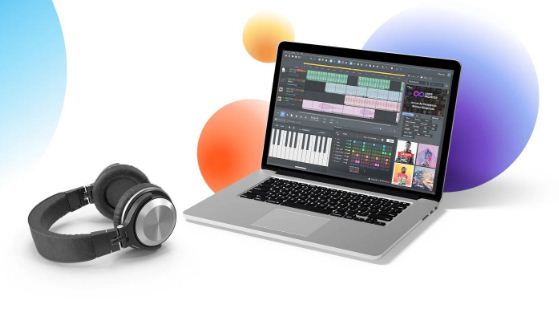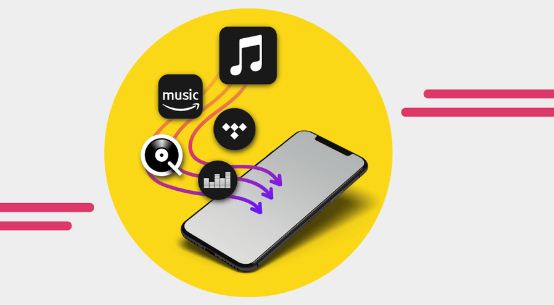Music technology in 2023
Music technology in 2023
The future of music technology is always an exciting topic to explore. What new innovations and ideas will change the way we create, consume and enjoy music? Here are five predictions for music technology in 2023.
- Increased use of AI in music composition and production
Artificial intelligence (AI) is already being used in music composition and production, but in 2023 it will become even more commonplace. AI-created music will become more realistic and accurate, replicating human performers’ nuances and subtleties. This will open up new possibilities for music creation, allowing composers to experiment with new sounds and textures.
- Virtual reality concerts
With the increasing popularity of virtual reality (VR), VR concerts will likely become more common in 2023. VR will allow concert-goers to experience gigs in a whole new way, transport them to different locations, and give them a front-row seat, no matter where they are in the world.
- More use of biometrics in music
Biometrics, the use of physical or behavioral characteristics to identify individuals, is already being used in music. In 2023, this technology will become even more commonplace, with wristbands and other wearable devices measuring heart rate, skin conductance and other data to generate personalized music experiences. This could be used to create custom soundtracks for exercise, relaxation or sleep, for example.
- Augmented reality music apps
Augmented reality (AR) is set to become one of the most popular technologies of the next few years, and it will also have a big impact on music. In 2023, we’ll see a proliferation of AR music apps that allow users to experience music in a whole new way. These apps could allow you to visualize the music as you’re listening to it, or interact with it in physical space.
- Increased use of blockchain in the music industry
Blockchain is a distributed database that allows for secure, transparent and tamper-proof transactions. In 2023, we’ll see the use of blockchain increase throughout the music industry, from songwriting and publishing to royalty collection and distribution. This could help to solve some of the problem.
The future of music technology
What will music technology look like in 2023? This is a question that is on the minds of many people in the music industry. With the rapid pace of change in technology, it is hard to predict what the future will hold. However, a few trends are likely to continue and will shape the future of music technology.
One trend that is likely to continue is the increasing use of artificial intelligence in music production. AI is already being used by some music producers to create new sounds and to help with the mixing and mastering process. In the future, AI will become even more involved in the music production process and be used to create entire songs on its own.
Another trend that is likely to continue is the increasing use of virtual reality in music production. With virtual reality, producers will be able to create entire virtual worlds for their music. This will allow them to create more immersive and realistic experiences for their listeners.
Finally, another trend that is likely to continue is the increasing use of streaming services. Streaming services like Spotify and Apple Music are already very popular, and they are only going to become more popular in the future. As more and more people use these services, the demand for higher quality music will increase. This will lead to more producers using better-quality equipment and software to create their music.
All of these trends are likely to shape the future of music technology. We can only wait and see what the future holds for us.

Music technology trends
you can read more about music technologies in wereformusicians
Music technology has come a long way in the last few decades. From the early days of the synthesizer to the modern-day digital audio workstation, music technology has continually evolved to meet the needs of musicians and producers. Here are three music technology trends that we think will be big in 2023.
- Augmented Reality
Augmented reality (AR) is one of the most exciting emerging technologies. While it is still in its early stages, there are already a number of AR apps and devices available that allow users to experience enhanced versions of reality. We think AR will have a big impact on music technology in the coming years.
There are a number of ways AR could be used in music production and performance. For example, AR could be used to display visualisations of sound waves or to create interactive visualisations of music notation. AR could also be used to create immersive live music experiences, where audiences can see augmented versions of the performers and the stage.
- Artificial Intelligence
Artificial intelligence (AI) is another emerging technology that is beginning to have a big impact on music technology. AI is being used in a number of ways, from automatic music generation to real-time analysis of musical performances.
AI could be used to create new sounds and effects that are not possible with traditional music production methods. AI could also be used to create realistic virtual instruments that sound and behave like real instruments. AI could also be used to develop new ways of interacting with music, such as smart instruments that adapt to the player’s abilities.
- Cloud-Based Technology
Cloud-based music technology is becoming increasingly popular, as it allows users to access their music files and applications from any location. Cloud-based music services also offer a number of advantages, such as lower costs, increased storage capacity, and easier collaboration.
We think cloud-based music technology will continue to grow in popularity in the coming years. More and more music producers and musicians will adopt cloud-based services and applications, as they offer a number of advantages over traditional music production methods.
The future of music production
The future of music production is shrouded in potential and possibility. While we can’t say definitively what the next decade will bring, we can make some informed predictions about the trends that will shape the industry in the years to come.
- Increased accessibility of music production tools
As music production tools become more and more user-friendly, we can expect to see a wider range of people getting involved in the music-making process. This increased accessibility will open up the industry to a whole new generation of producers, songwriters, and performers.
- Virtual reality and augmented reality
As virtual reality and augmented reality technology becomes more sophisticated, we can expect to see it increasingly being used in music production. This could allow producers to create virtual studio environments, giving them the ability to experiment with sound and space in new and innovative ways.
- The rise of the DIY artist
As the music industry continues to evolve, we’re likely to see a growing trend of artists taking a DIY approach to their careers. With the increasing accessibility of music production tools and the growing popularity of streaming services, it’s becoming easier and more affordable for artists to self-release their music.
- The continued growth of streaming
Streaming is already having a huge impact on the music industry, and this is only set to continue in the years to come. As more and more people turn to streaming services as their primary source of music, we can expect to see changes in the way that music is produced, distributed, and consumed.
- The rise of artificial intelligence
Artificial intelligence is already starting to make its way into music production, with some producers using AI-powered tools to help them compose and produce tracks. As AI technology continues to develop, we can expect to see it playing an even bigger role in the music industry, from helping artists to create new sounds to assisting with the distribution and promotion of music.

Music technology predictions
- The continued rise of AI in music composition and performance
As artificial intelligence technology continues to develop, it will increasingly be used in music composition and performance. AI-created music is already starting to appear in advertising and other commercial applications, and it is only a matter of time before it becomes more widespread.
- The continued popularity of streaming services
Streaming services such as Spotify and Apple Music are becoming increasingly popular, and this trend is likely to continue in the coming years. More and more people are subscribing to these services, and they are becoming an increasingly important part of the music industry.
- Virtual reality concerts
Virtual reality technology is becoming more and more realistic, and it is likely that virtual reality concerts will become a popular way to experience live music in the future. With virtual reality, you will be able to feel as if you are actually at a concert, no matter where you are in the world.
- Wearable music technology
Wearable music technology is another trend that is likely to continue to grow in popularity. This technology allows you to listen to music without having to carry around a bulky device. There are already a number of different wearable music players on the market, and it is likely that new and improved versions will be released in the future.
- Increased use of biometrics in music
Biometrics, which is the use of body measurements to identify individuals, is already being used in a number of different ways in the music industry. For example, some companies are using biometrics to prevent music piracy. In the future, biometrics is likely to be used even more in the music industry, for a variety of purposes.
What will music technology be like in 2023?
The year 2023 may seem like a long way off, but it will be here before we know it. So, what will music technology be like in 2023?
For starters, we can expect music streaming services to continue to grow in popularity. In fact, it is estimated that by 2023, nearly 70% of the global music market will be streaming. This means that more people than ever before will be listening to music online.
What else can we expect?
- More AI in Music
One of the biggest trends in music technology right now is the use of artificial intelligence (AI). AI is being used to create new music, help musicians compose songs, and even generate personalized playlist recommendations.
As AI continues to evolve, we can expect it to play an even bigger role in music. In 2023, AI may be used to create entire songs on its own, or it could be used to help musicians come up with new ideas and concepts for their music.
- Virtual Reality Concerts
Virtual reality (VR) is another technology that is starting to make its way into the music industry. There are already a few companies that are experimenting with VR concerts, and it is likely that this trend will continue to grow in the next few years.
In 2023, we may see VR concerts become more widespread. With VR, concertgoers will be able to experience concerts in a whole new way, and they will be able to see their favorite artists perform in a completely immersive environment.
- 3D-Printed Instruments
3D printing is another technology that is starting to make its way into the music industry. Already, there are a few companies that are experimenting with 3D-printed instruments, and it is likely that this trend will continue to grow in the next few years.
In 2023, we may see more 3D-printed instruments on the market. These instruments will be made using a variety of different materials, and they will be able to produce a wide range of sounds.
- Wearable Music Devices
Wearable music devices are another trend that is starting to gain traction in the music industry.
